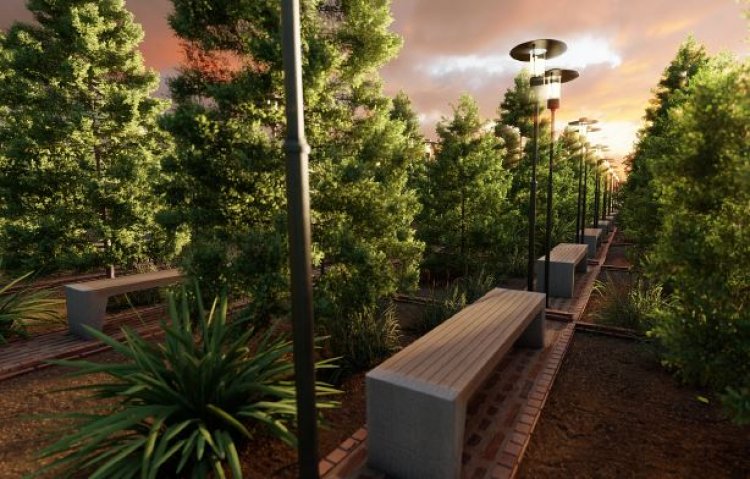South Phoenix Native Aims To Combat Environmental Injustice, Tackle Air Pollution With Forest Of 'Smart Trees'

PHOENIX, AZ, UNITED STATES: Combatting environmental injustice in South Phoenix is one of the top goals of Waffle Forest Founder and CEO Ernest Lerma. The 32-year-old businessman was raised in South Phoenix among the polluting industries and landfills; his new non-profit aims to rehabilitate a contaminated former landfill and tackle air pollution with "smart trees" and direct-air-capture technology.
"Like many major cities, Phoenix is spatially divided between suburbs occupied by mainly white populations and inner-city regions home to highly concentrated minority populations. This divide has always been painfully apparent to folks living in the urban core of the city, particularly in South Phoenix where I was raised," Lerma explained. "Studies show Phoenix’s most marginalized communities of color are the most vulnerable to environmental and health hazards, which over time have been concentrated geographically to surround their homes. Phoenix is now the fifth-largest city in the U.S., and it's sprawling expansion has happened at the expense of minority and low-income communities, especially the large Hispanic population in South Phoenix."
Lerma's ambition is to regenerate a former Superfund site by planting "smart trees" and installing carbon-sequestering direct-air-transfer infrastructure.
"The Arizona Department of Environmental Quality says 19th Avenue Landfill is polluted with volatile organic compounds and heavy metals; the site releases 600 cubic feet of gases into the air every minute. Studies show that children who grow up within a one-mile radius of a landfill are 12 percent more likely to be born with congenital diseases," Lerma reported. "South Phoenix’s population is constantly exposed to disparate amounts of pollutants and industrial hazards, demonstrating a clear pattern of environmental injustice - as soon as you cross the bridge you can smell the pollution. This area is an epicenter of inequity where citizens are exposed to racial, environmental, and financial burdens. I want to do something to improve the lives of the people in the neighborhood where I grew up."
The non-profit has applied for grant funding and is seeking City approval to begin a pilot program of 100 "smart trees" using mature native desert species like mesquite, desert willow, southern live oak and palo verde. Waffle Forest's name is descriptive: the ultimate goal is to fill the 213-acre site with rows upon rows of 15-by-15-foot-square "smart tree" installations laid out in a waffle pattern. Each tree would be equipped with groundbreaking new TreeTalker technology to measure the amount of carbon it removes from the air, its health, water use, and collect other important data.
Waffle Forest envisions planting 10,000 trees in this "tech forest," and augmenting it's effects with direct-air-capture infrastructure like the "mechanical trees" being developed at Arizona State University's Julie Ann Wrigley Global Futures Laboratory. The project would reduce air pollution in the greater Phoenix metropolitan area and create a park-like atmosphere.
"The result of the Waffle Forest project will be green and welcoming parkland where now there's toxic wasteland," Lerma said. "Our mission is to revitalize the communities and environment in South Phoenix through a combination of climate-changing technology and humanitarianism, bringing nature back into this polluted industrial area."
The 501(c)3 non-profit organization has exclusively contracted to deploy TreeTalker technology created by Dr. Riccardo Valentini, PhD., a Nobel Peace Prize winner who will serve as chief scientific advisor for the project.















































